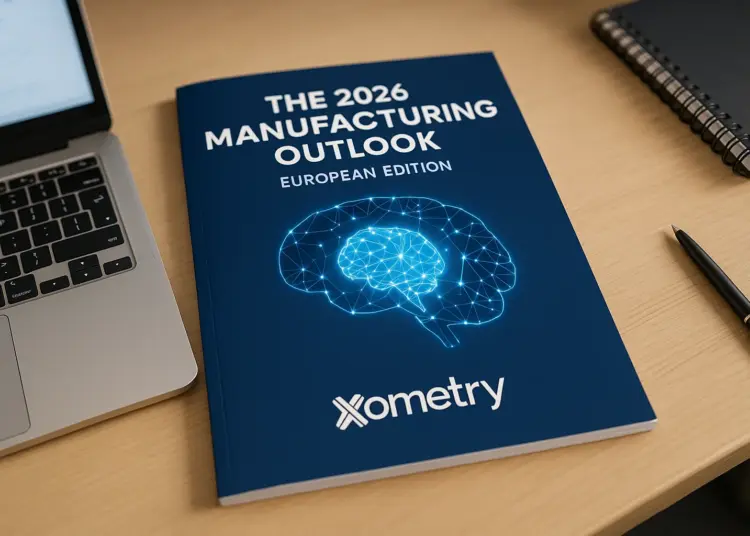Story Highlight
– 82% of executives see AI as key growth driver.
– Agility and quick adaptation are now essential.
– Buyers demand higher quality and faster delivery.
– 71% of manufacturers raised prices amid customer pushback.
– Embracing AI is crucial for UK manufacturing leadership.
Full Story
The recent report, “2026 Manufacturing Outlook – European Edition,” published by Xometry, a prominent player in on-demand manufacturing, outlines key trends and urgent recommendations for manufacturers across the UK. The findings signal significant shifts in the industry, necessitating immediate attention from businesses seeking to thrive in an increasingly competitive environment.
**The Ascendancy of Artificial Intelligence**
Artificial intelligence (AI) is transforming from a theoretical concept into a critical operational tool within the manufacturing sector. According to the report, a substantial 82% of manufacturing executives identify AI as a crucial factor in driving growth. Remarkably, approximately half of these leaders report that their investment in AI is yielding strong returns. In the forthcoming year, firms in the UK and Europe are projected to allocate between £425,000 and £1.7 million towards AI initiatives, specifically aimed at enhancing supply chains, procurement processes, and quality assurance measures.
The seamless integration of AI technologies—ranging from generative design to predictive maintenance—is emphasized as vital for competitive sustainability. As Vaidy Raghavan, Chief Product & Technology Officer at Xometry, notes, “When AI stops being siloed and starts connecting functions across an organisation, that’s when ROI compounds and transformative value can be achieved.” This highlights the necessity for manufacturers to move beyond initial pilot projects to fully harness the potential of AI across their operations.
**Adaptability: A Key Business Asset**
In an environment characterized by rapid changes, agility has emerged as a critical asset for manufacturers. While 73% of businesses in the UK and Europe have developed continuity plans, only 29% feel adequately prepared to navigate potential disruptions, such as geopolitical tensions or spikes in raw material costs. The ramifications of Brexit further complicate the landscape for UK manufacturers, making strategies such as reshoring, creating flexible manufacturing capacities, and diversifying suppliers increasingly essential.
Implementing redundancy in supply chains—such as identifying alternative suppliers and ensuring the interchangeability of components—will empower UK firms to better respond to interruptions and capitalize on emergent opportunities.
**Elevated Customer Expectations**
Today’s consumers have heightened expectations concerning product offerings. The study indicates that 52% of customers prioritize higher product quality, while 47% desire faster delivery times, and 45% are increasingly looking for transparency within supply chains. For UK manufacturers to build trust with their clients, they must adopt measures that ensure real-time tracking of orders, facilitate on-demand production, and promote radical transparency regarding costs and delivery timelines. Effectively, the manufacturing sector must strive to emulate the level of efficiency and communication exemplified by leading e-commerce platforms.
**Navigating Pricing Challenges**
The dynamics of pricing are becoming a pressing concern for manufacturers. In 2025, a significant 71% of UK and European manufacturers increased their prices, with many anticipating further price hikes in the future. Nonetheless, this has met with resistance, as indicated by a 68% rate of customer pushback against such increases. To navigate these complexities, the report suggests the adoption of dynamic, data-driven pricing strategies and the utilization of technology-augmented procurement processes. Such approaches will enable UK firms to protect their profit margins without jeopardizing customer relationships, a crucial balance in today’s market.
**A Strategic Vision for 2026 and Beyond**
The report unanimously underscores a pivotal message for UK manufacturers: embracing artificial intelligence, developing resilient supply chains, and fostering customer trust are critical to achieving market leadership. By proactively investing in digital tools and exploring agile sourcing options, Britain’s manufacturing sector is poised to convert prospective challenges into opportunities for innovation and growth, thereby enhancing its competitive stance on the global stage.
For those interested in an in-depth analysis, the comprehensive 2026 Manufacturing Forecast by Xometry is available for download, offering detailed data and insights to guide manufacturers through the evolving landscape.
Key Takeaways
– **AI Integration**: 82% of manufacturing executives view AI as crucial for growth; 44% plan significant investments in AI for supply chains and quality control.
– **Agility Focus**: Only 29% of manufacturers feel prepared for disruptions; adaptability through reshoring and supply diversification is essential.
– **Customer Expectations**: Rising demands for product quality and faster delivery require real-time tracking and transparency.
– **Pricing Pressures**: Continued price increases are met with pushback; dynamic pricing strategies are recommended to maintain margins.
– **Strategic Roadmap**: Emphasizing AI adoption, resilient supply chains, and customer trust is critical for UK’s manufacturing growth and competitiveness by 2026.























AI offers powerful tools for improving efficiency and decision making, but it must be implemented with clear safeguards for worker safety and wellbeing. As manufacturers adopt new technologies and faster production cycles, risk assessments, updated training and robust maintenance regimes are essential to prevent incidents and ensure systems operate as intended. Supply chain resilience and transparent communication with customers will help manage expectations around pricing and delivery while supporting a culture of continuous improvement.
AI and agility can deliver real safety and efficiency gains on the factory floor when implemented with clear risk assessments and worker involvement. Practical steps include evaluating new tools through existing safety management arrangements, ensuring training for staff operating and supervising AI driven systems, and maintaining transparent supply chain practices so procurement decisions do not introduce hidden hazards. Dynamic pricing and faster delivery matter, but they should not come at the cost of rushed processes or reduced maintenance. Prioritising resilience, clear communication with customers and a culture of continuous improvement will protect both productivity and people.
AI and agility will be central to keeping UK manufacturing safe, efficient and competitive. Practical AI applications can help predict equipment failures, optimise maintenance schedules and reduce human exposure to hazardous tasks. Building resilience into supply chains reduces the likelihood of last minute workarounds that compromise safety. Transparent communication with customers about lead times and quality helps manage expectations and avoid unsafe pressure to cut corners. Dynamic pricing should never incentivise unsafe practices; any operational change must be assessed for safety risk and supported by training and clear procedures.
This report underscores the need for manufacturers to align technological adoption with practical workplace safeguards. Embracing AI can deliver productivity and quality gains, but organisations must also focus on workforce training, risk assessments, and clear procedures to manage new hazards from automation and data driven processes. Maintaining supply chain resilience and customer trust depends on transparent communication about how AI is used and on ensuring systems are secure and reliable. Dynamic pricing may help margins, yet it should be implemented alongside fair procurement practices and oversight to avoid unintended operational pressures that could compromise safety or quality.